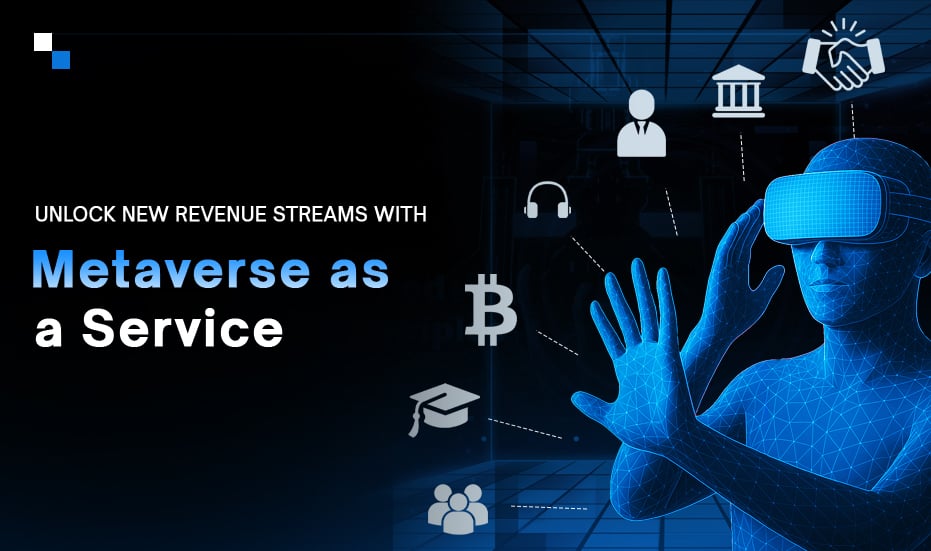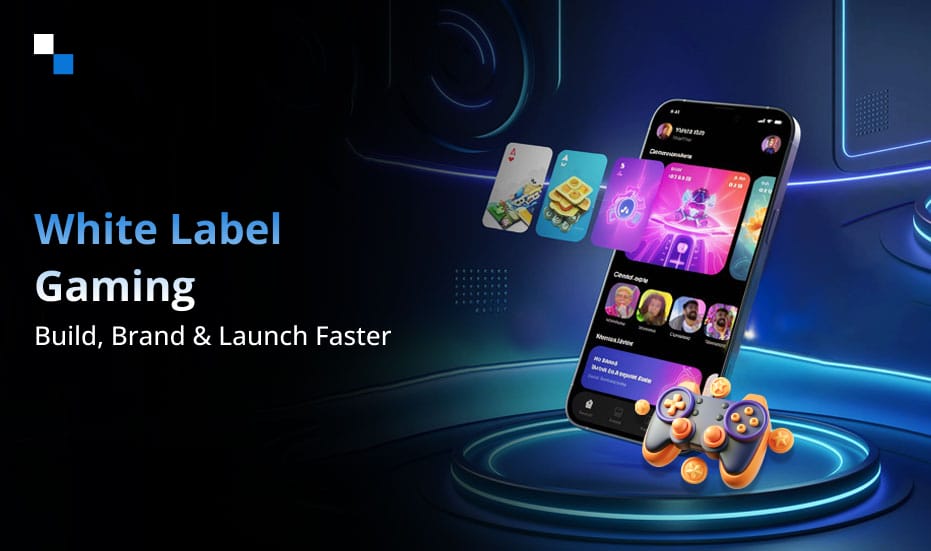
How to build a high-performance SUI blockchain exchange in 2025?
November 28, 2024
A Step-by-Step Guide: Create An Optimized AA Smart Crypto Wallet with an Off-Ramp Debit Card
November 29, 2024In a world where reality and imagination blur, augmented reality and virtual reality stand at the forefront of the technological revolution. These immersive technologies are not just novelties but also gateways to new dimensions of experience that capture our senses and transform how we perceive the world around us.
From gamifying, which transports the player into magical dimensions, to the tool that enables the presentation of difficultly complex ideas in simple means, augmented reality and virtual metaverse games reshape our relationships between digital and human-to-human content. As the technology is set to roll out further, exciting expectations exist, foreshadowing a world in which mundane day-to-day will be more enhanced with multiple interlocking strands of digital connection.
In this blog, we’ll unlock the potential of AR/VR game development and the upcoming trends that we can expect in 2025!
Growing Hype of AR/VR Game Development
The excitement about these VR game development technologies is that they are really going to create some entertaining and interactive experiences. Users are immersed in completely artificial environments. Virtual reality is about such an environment where exploration, interaction, and discovery by the user can be done in no other way than through such a medium. Augmented reality extends the real world by overlaying digital information onto physical settings, providing contextual insights, and introducing interactive elements that can make most mundane tasks more interesting.
Such rising hype also receives further support from significant investments from tech giants as well as startups into these technologies, looking to innovate and expand them in multiple industries. With all this, the developments that go with headsets and mobile devices would make the user experience dramatically shift upward. From virtual training simulations to interactive marketing campaigns, the potential of augmented and virtual metaverse games is vast, which places them as key players in the future of technology.

Top 15 AR/VR Trends
- Enhanced Realism and Immersive Experiences
- Cross-Platform Play
- Cloud Gaming and Streaming
- AI-Powered Gameplay
- Social VR and Multiplayer Experiences
- Physical Fitness and Exercise Games
- Educational games
- Mobile AR Gaming
- Esports and Competitive Gaming
- Augmented Reality Sports and Entertainment
- Biofeedback and Neurofeedback Integration
- Blockchain and Cryptocurrency in Gaming
- Accessibility and Inclusivity
- Ethical Considerations and Responsible Gaming
- Integration with Other Technologies
1. Unrealistic, Immersive Feeling
Among the most compelling trends for virtual metaverse games, there is relentless push towards realism and the immersive. Advances in hardware and software are offering developers increasingly lifelike virtual worlds. Some other factors include:
- High Resolution Displays: more detailed visuals and textures add to realism in virtual settings.
- High-End Tracking Systems: Better tracking enables better interaction of virtual objects with high precision and speed.
- Haptic Feedbacks: Tactile feeling is given with the usage of haptic feedback. The immersion is made possible through more sense of touch.
- Real-Time Ray Tracing: Real-time ray tracing gives realistic lighting effects with reflections and shadows.
- Eye-Tracking Technology: Eye-tracking technology allows improving rendering by focusing on what the player is looking at to enhance performance and eliminate motion sickness.
2. Cross-Platform Play
Cross-platform play in the gaming industry is essential in AR/VR gaming, as it enables players from different platforms to interact with each other. Some benefits of cross-platform play that every VR metaverse development company must consider are:
- Larger User Base: Developers can now assemble larger and more vibrant user bases by combining bases between different platforms.
- More Social Interaction: Interacting and collaborating across many different backgrounds is encouraged through cross-platform play.
- Rivalry Amplification: Larger user bases translate to much-intensified rivalry, providing for more thrilling esports.
3. Cloud Gaming and Streaming
Cloud gaming and streaming services are changing the face of how we access and play games. These services allow players to stream high-quality VR metaverse games to various devices, including VR headsets, by offloading processing power to remote servers. The key advantages of cloud gaming and streaming include:
- Reduced Hardware Requirements: Players do not need powerful gaming PCs or consoles to enjoy high-end games.
- Instant Access to Games: Cloud gaming services offer instant access to a huge library of games, doing away with downloads and installations.
- Improved Accessibility: Cloud gaming makes it easier for more people to VR metaverse game, especially those who cannot afford the cost or do not have the technical expertise.
4. AI-Powered Gameplay
Artificial intelligence is changing the gaming world to offer more intelligent and dynamic experiences in gameplay. AI-powered NPCs can adapt to the behavior of players, learn from their mistakes, and give challenging and engaging encounters. AI can also be used for procedural content generation, creating realistic environments, and improving the overall gaming experience.
5. Social VR and Multiplayer Experiences
Social VR and multiplayer experiences are changing how people interact with each other in the virtual world. Platforms for VR are being redefined as social destinations, where players can go, chat, and even work together. Multiplayer VR game development provides cooperative and competitive playing environments that allow people to interact socially and create memorable shared experiences.
6. Physical Fitness and Exercise Games
The AR and VR technologies are revolutionizing the industry of fitness by providing the most engaging workout experiences. Such games turn normal exercises into exciting challenges for users, keeping them active and motivated. Tracking physical movements with real-time feedback, these VR metaverse games help users track their progress in achieving their fitness goals.

7. Educational Games
Augmented and virtual metaverse games are changing the face of education by creating interactive and immersive learning experiences. Educational games take learners to virtual classrooms, historical sites, or scientific laboratories, making learning fun and engaging. Such games can be used to teach a wide range of subjects, from mathematics and science to history and language arts.
8. Mobile AR Gaming
Mobile AR gaming has become more popular, with the power of smartphones that can deliver a real augmented reality experience. Most of the VR metaverse games overlay the digital content in the real world, giving it an interactive and immersive experience. Catching a virtual creature or solving a puzzle in a real-life environment, mobile ARs offer an experience that most gamers love.
9. Esports and Competitive Gaming
AR and VR technologies are driving the growth of esports and competitive gaming. VR metaverse games provide immersive and competitive experiences where players can show off their skills in virtual arenas. As VR game development is on the rise, we can expect more innovative and exciting esports competitions in the future.
10. Augmented Reality Sports and Entertainment
AR is revolutionizing how we watch sports and entertainment- it superimposes information on a live broadcast by overlaying digital information and enhances the viewer experience by enabling real-time statistics, player information, and other interactive experiences. In addition, using AR technology can provide people with virtual experiences like concerts and sporting events in new ways.
11. Biofeedback and Neurofeedback Integration
Biofeedback and neurofeedback technologies are turning out to be strong tools for enriching the gaming experience. Biofeedback technologies, for instance, measure physiological responses such as heart rate, brainwaves, or skin conductance, making it possible to tailor a game according to the specific needs and preferences of a player. In this regard, virtual metaverse games could adjust their difficulty level or visual stimuli to the player’s emotional state, thus ensuring a highly personal and immersive experience.
12. Blockchain and Cryptocurrency in Gaming
Blockchain provides a safe and transparent way to handle in-game assets, such as virtual items and currencies. Through blockchain, developers can create decentralized economies where players can truly own and trade their digital possessions. Cryptocurrency can be used as a medium of exchange within these virtual economies, enabling players to purchase in-game items and services.
13. Accessibility and Inclusivity
As AR/VR technology develops, there is an important need for it to be accessible to people with disabilities. For instance, voice commands, customizable controls, and visual aids can be added in VR metaverse games. The more the gaming industry focuses on accessibility, the more opportunities there are to engage a greater number of people in gaming.
14. Ethical Considerations and Responsible Gaming
With the increase in the immersive nature of AR/VR, ethical concerns are very important, and responsible gaming should be encouraged. Developers need to consider the negative effects that over-gaming can cause: addiction and social isolation. In this regard, the industry can mitigate such risks by using measures such as time limits, parental controls, and resources on mental health.
15. Integration with Other Technologies
VR metaverse games are soon to be integrated with the emerging technologies of IoT, AI, and robotics. IoT devices can be used for interactive environments where virtual objects react to real-world stimuli. AI can power intelligent NPCs and generate dynamic content. Robotics can be used for physical experiences that complement the virtual world. By combining these technologies, developers can create truly groundbreaking and innovative gaming experiences.
Hire the Best VR Metaverse Game Development Company
Elevate your gaming experience to the next level with Antier, the leading VR metaverse game development company. Our set of proficient developers and designers is all about creating immersive as well as captivating virtual realities. Right from concept design to final reality, they specialize in creating cutting-edge high-tech games that push and surpass all boundaries of technology; whether a single-player game or multi-player social experience comes into consideration, we have in our set of expertise with which you can bring your imaginative ideas into reality.



